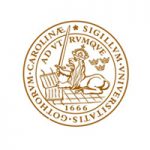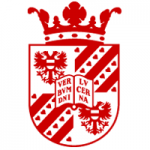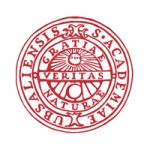项目介绍
Lund University was founded in 1666 and is repeatedly ranked among the world’s top universities. The University has around 47 000 students and more than 8 800 staff based in Lund, Helsingborg and Malmö. We are united in our efforts to understand, explain and improve our world and the human condition.
Lund University welcomes applicants with diverse backgrounds and experiences. We regard gender equality and diversity as a strength and an asset.
About the doctoral programme
The doctoral student will be part of the research school StoryPharm. StoryPharm is a Marie Skłodowska Curie Doctoral Network with the participation of a total of five universities: Cyprus, Bamberg, Salerno, Cardiff and Lund. The coordinator of the research school is Professor Stavroula Constantinou (Cyprus). Professor Christian Høgel is responsible at the Centre for Language and Literature at Lund University. The project grant agreement number is 101169114.
Read more about the doctoral network at: https://www.ucy.ac.cy/storypharm/.
The research school will admit a total of 19 doctoral students, of which three at the Centre for Languages and Literature at Lund University. The overarching common theme for all will be stories in pre-modern medical literature (medical works, various genres of health and healing stories, etc.) from a literary perspective.
The doctoral position in this announcement refers to one of the three doctoral positions av the Centre for Languages and Literature. The three doctoral students will be employed at the Joint Faculties of Humanities and Theology. The entry salary will be 32 600 SEK/month, plus mobility allowance (3 000 SEK) and, only if applicable, family allowance (4 500 SEK).
Information about doctoral studies at the Joint Faculties of Humanities and Theology can be found at https://www.ht.lu.se/en/education/doctoral-studies/.
Information about the research project
Project title: “The Kitāb al-Tajârib and the genre of Medical Collections: The Medical Case Story in the Greek, Arabic and/or Latin traditions”
This project will examine the medical case story in its use as instruction to other practitioners and its possible function as part of patient treatment. A point of departure will be the Kitāb al-Tajârib of Abū Bakr Muḥammad b. Zakarīyā’ al-Rāzī (c. 865–925 CE), but the project may cover any sequence and interconnection within the ancient/medieval Greek, Arabic, or Latin tradition of medical case stories, with a preference for projects that take and intercultural perspective. Case stories formed an important narrative genre in all pre-modern medicine but have in scholarship mostly been studied as conveying information from one doctor to the next. This project will examine the case story’s narrative elements, the strategies promoting the physician’s authority and reliability, and doctor–patient interactions.
The training includes a three-month academic secondment at the University of Bamberg (UNI BA) and a one-month non-academic secondment at David Collection (Copenhagen).
Objectives: The doctoral student will aim at achieving the following results: (1) illuminate the rhetorical and narrative strategies employed by medieval (Greek/Arabic/Latin) physicians to establish their medical authority and power; (2) show how the doctor-patient interaction is manipulated in these narratives; (3) establish the case story as a literary genre with its own conventions and characteristics.
When composing their text regarding the project, the applicant may wish to consider:
- What were the generic features governing tales of doctor-patient interaction in the (ancient/medieval) Greek, Arabic, or Latin medical tradition?
- How did these narratives translate across language and cultural borders?
- How do the stories underpin the authority of physicians (in various ages/regions)?
- Were tales told to convince other physicians or to be reused in clinical situations, either as guidelines or as tales to be retold to patients?
Short Bibliography
Álvarez-Millán, Cristina. 2010. “The Case History in Medieval Islamic Medical Literature: Tajarib and Mujarrabat as Source,” Medical History 54, 195–214.
Bouras-Vallianatos, Petros and Sophia Xenophontos (eds) 2018. Greek Medical Literature and its Readers: From Hippocrates to Islam and Byzantium. London.
Burnett, C. 2001. “The Coherence of the Arabic-Latin Translation Program in Toledo in the Twelfth Century,” Science in Context 14, 249-88.
Green, M.H. 2005. “Constantine the African” in T.F. Glick et al- (eds.), Medieval Science, Technology and Medicine: An Encyclopedia. New York: Routledge, 145-47.
Pietrobelli, Antoine and Marie Cronier 2022. “Arabic Galeanism from Antioch to Byzantium: Ibn Butlan and Symeon Seth,” Mediterranea: International Journal on the Transfer of Knowledge 7, 281–315.
Pormann P.E. & E. Savage-Smith. 2007. Medieval islamic medicine. Edinburgh: Edinburgh University Press.
Work assignments
Doctoral education. Departmental work, such as teaching and administrative tasks, can be assigned.
Entry requirements
Entry requirements for doctoral studies in each subject are specified in the relevant general syllabus, available at https://www.ht.lu.se/en/utbildning/forskarutbildning/dina-doktorandstudier/general-syllabi/.
For this positions the candidate must not have resided or carried out their main activity (work, studies etc.) in the country of the recruiting organisation for more than 12 months in the 3 years immediately before the recruitment date (mobility rule). Any time spent as part of a procedure for obtaining refugee status under the Geneva convention (1951 Refugee Convention and the 1967 Protocol), compulsory national service and/or short stays such as holidays do not count towards the total.
Assessment criteria
The selection process will primarily take into account the applicants’ ability to benefit from third cycle studies. This is assessed against the criteria quality, quantity, progression and relevance.
It is considered a merit that the applicant has studied/worked on ancient or medieval text material.
Application
Instructions for applying for a doctoral student position can be found here: https://www.ht.lu.se/en/education/doctoral-studies/become-a-doctoral-student-at-the-ht-faculties/application-and-admission/.
The application must include:
- CV/list of qualifications including relevant administrative and educational qualifications
- cover letter
- records of first- and second-cycle studies (attested copies of official transcripts of records)
- first- and second-cycle theses/degree projects
- any scholarly publications
- documentation of language skills of relevance for the research studies
- project proposal (1500 words max. excluding references).
Please note that you need to upload all documents with your application in PDF format.
Type of employment
Limit of tenure, four years according to HF 5 kap 7§.
About The Joint Faculties of the Humanities and Theology
The Joint Faculties of the Humanities and Theology have eight departments and carries out large and varied work within research and education with the purpose to understand people as cultural and social beings. The faculties have around 700 employees and around 4000 students.
About the Centre for Languages and Literature
The Centre for Languages and Literature (SOL) is Sweden’s largest institution specialising in languages, linguistics, comparative literature and area studies. SOL offers a large number of independent courses complemented by a growing number of undergraduate and graduate programmes. With 36 subjects and some 30 postgraduate programmes, SOL forms a solid unit with breadth and depth in teaching and research and is distinguished by both national and international visibility. SOL is led by a board of which the Head of Department is chairman. In addition, there are three Assistant Heads of Department with special operational responsibilities. The centre has 300 employees and 8 000 students including around 100 doctoral students.
联系方式
电话: +46 (0)46 222 0000相关项目推荐
KD博士实时收录全球顶尖院校的博士项目,总有一个项目等着你!





